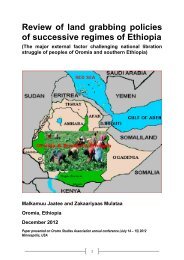freakonomics
freakonomics
freakonomics
You also want an ePaper? Increase the reach of your titles
YUMPU automatically turns print PDFs into web optimized ePapers that Google loves.
Kennedy couldn’t wait for the first Klan meeting after the show hit the air. Sure enough,<br />
the Klavern was in distress. The Grand Dragon tried to run a normal meeting but the rank<br />
and file shouted him down. “When I came home from work the other night,” one of them<br />
complained, “there was my kid and a bunch of others, some with towels tied around their<br />
necks like capes and some with pillowcases over their heads. The ones with capes was<br />
chasing the ones with pillowcases all over the lot. When I asked them what they were<br />
doing, they said they were playing a new kind of cops and robbers called Superman<br />
against the Klan. Gangbusting, they called it! Knew all our secret passwords and<br />
everything. I never felt so ridiculous in all my life! Suppose my own kid finds my Klan<br />
robe some day?”<br />
The Grand Dragon promised to expose the Judas in their midst.<br />
“The damage has already been done,” said one Klansman.<br />
“Our sacred ritual being profaned by a bunch of kids on the radio!” said the Kladd.<br />
“They didn’t put it all on the air,” the Grand Dragon offered.<br />
“What they didn’t broadcast wasn’t worth broadcasting,” said the Kladd.<br />
The Dragon suggested they change their password immediately, from “red-blooded” to<br />
“death to traitors.”<br />
After that night’s meeting, Kennedy phoned in the new password to the Superman<br />
producers, who promised to write it into the next show. At the following week’s Klan<br />
meeting, the room was nearly empty; applications for new membership had fallen to zero.<br />
Of all the ideas that Kennedy had thought up—and would think up in the future—to fight<br />
bigotry, his Superman campaign was easily the cleverest and probably the most<br />
productive. It had the precise effect he hoped: turning the Klan’s secrecy against itself,<br />
converting precious knowledge into ammunition for mockery. Instead of roping in<br />
millions of members as it had just a generation earlier, the Klan lost momentum and<br />
began to founder. Although the Klan would never quite die, especially down South—<br />
David Duke, a smooth-talking Klan leader from Louisiana, mounted legitimate bids for<br />
the U.S. Senate and other offices—it was also never quite the same. In The Fiery Cross:<br />
The Ku Klux Klan in America, the historian Wyn Craig Wade calls Stetson Kennedy “the<br />
single most important factor in preventing a postwar revival of the Ku Klux Klan in the<br />
North.”<br />
This did not happen because Kennedy was courageous or resolute or unflappable, even<br />
though he was all of these. It happened because Kennedy understood the raw power of<br />
information. The Ku Klux Klan was a group whose power—much like that of politicians<br />
or real-estate agents or stockbrokers—was derived in large part from the fact that it<br />
hoarded information. Once that information falls into the wrong hands (or, depending on<br />
your point of view, the right hands), much of the group’s advantage disappears.









